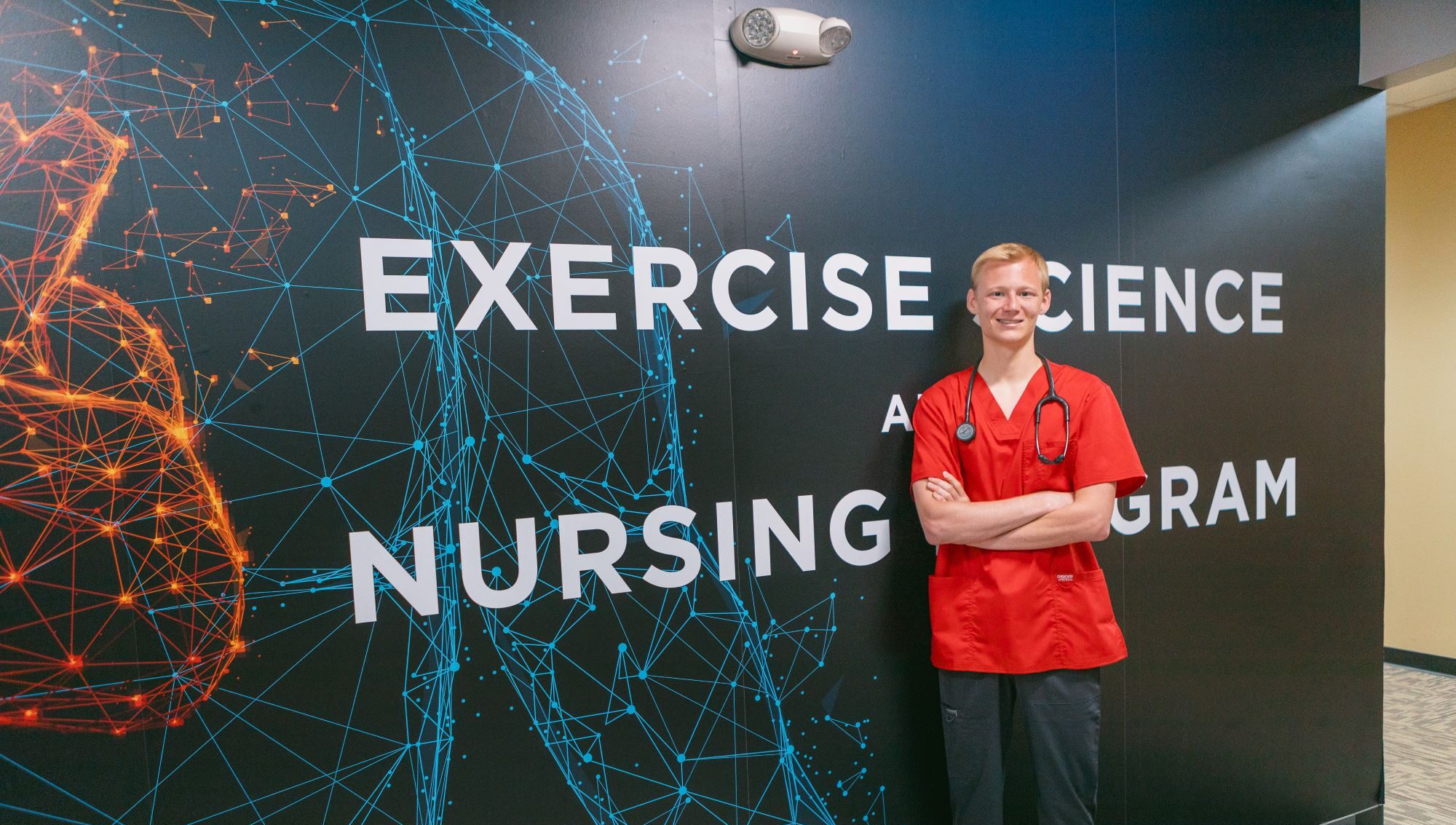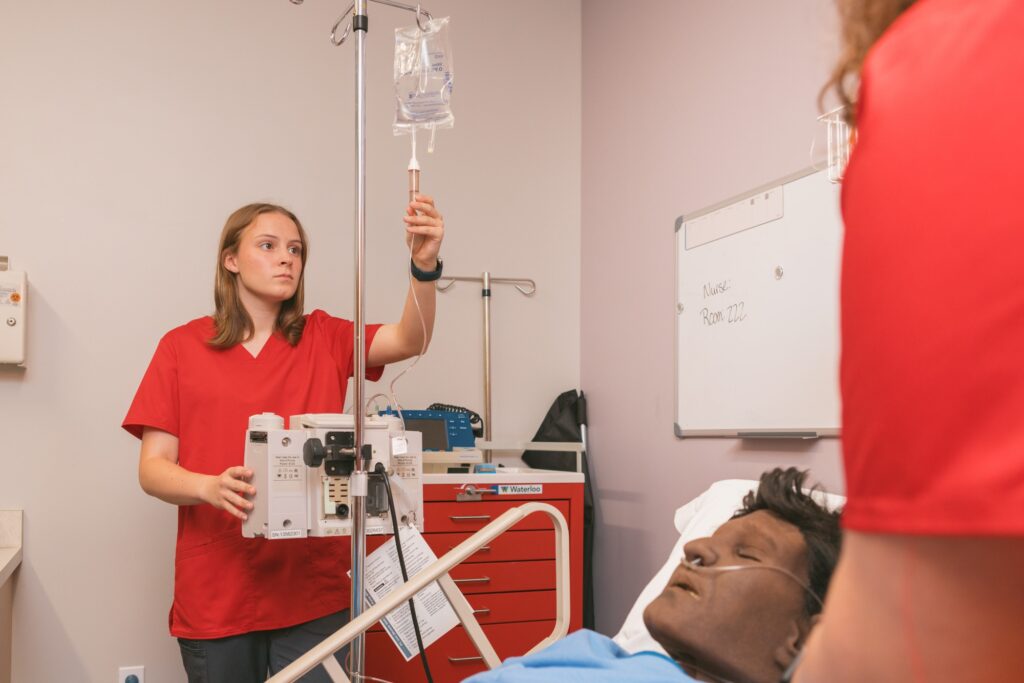What to Expect in Clinical Rotations
A nursing clinical rotation is integrated into your degree to give you practical, hands-on training for the workforce. My best advice is to approach nursing clinicals as a learner to truly build your nursing experience.
Usually, you’ll start bright and early in the morning at nursing clinicals. You’ll receive your patient or patients’ information and report to the nurse in charge of the patient’s care. Then, you’ll review the patient’s condition, complete a head-to-toe assessment, distribute medication under supervision, and provide general care. You’ll typically start with a shorter shift, like four or five hours, and work up to 12-hour shifts to acclimate yourself to a nursing unit environment.
At Grace, our nursing majors complete their nursing clinicals in various settings, including local hospital environments, retirement homes, and community clinics, many of which are located within a 10-mile radius of campus. Nursing students will also have access to Grace’s contemporary nursing simulation lab, where they can practice their skills in a life-like environment.
Following your time at nursing clinicals, you will have a post-conference to discuss and help you understand interesting things that happened during your clinical. It’s a great chance to learn from other nursing students and prepare for your next shift.
Our goal at Grace is to help nursing majors get exposed to several different clinical settings and areas to find a place that you like, and maybe find the ones you don’t like. This can be a great way to learn what area of nursing you enjoy and would like to pursue.
Taking the Next Step
Some nurses know exactly what area they want to study when they enter nursing programs. I personally knew I wanted to work specifically as an obstetrics nurse from the beginning. But not everybody knows that, and that’s okay. In Grace’s nursing program, we hope to help you find the area that you are really passionate about to discover your calling.
If you are looking for career options after you earn your BSN, read What Can I Do with a Nursing Degree? for helpful information and tips. Check out How to Succeed in Nursing School to learn how to thrive in nursing programs.
Dr. Kristen Richmond serves as the Assistant Professor of Nursing and the Director of Nursing at Grace College. She received her BSN and MSN from Ball State University and earned her DNP from Regis College. Her area of expertise is maternity nursing. Her research for her doctoral degree, titled “Coping Skills Assessment and Training for Newly Graduated Registered Nurses During the COVID-19 Pandemic,” was published in 2022.






